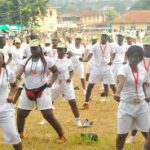When you hear the term “PPA” in the context of a “Corper,” it’s likely you’re talking about Nigerian Youth Service Corps (NYSC) members.
The National Youth Service Corps (NYSC) is a one-year program in Nigeria aimed at promoting unity, development, and nation-building. During this time, graduates are posted to different parts of the country for service.
“PPA” is an acronym for “Place of Primary Assignment,” and it plays a crucial role in the life of a Corper (a term used for a person serving in the NYSC). In this article, we will explore the meaning of PPA in Corper, what happens there, and why it’s such an important part of the NYSC experience.
What is NYSC?
Before diving into what PPA means, it’s important to understand the National Youth Service Corps (NYSC). NYSC was established in 1973 to involve Nigerian graduates in national development and promote unity among the country’s diverse ethnic groups. Every Nigerian graduate under the age of 30 is expected to serve for one year, and the service is mandatory. The program is divided into several stages, including orientation, primary assignment, and community development.
After the orientation phase, which typically lasts for three weeks, Corpers are posted to different states, where they will work in various sectors such as education, health, agriculture, and infrastructure. The specific place where they are posted to work is called the Place of Primary Assignment or PPA.
What Does PPA Mean in Corper?
PPA stands for Place of Primary Assignment. It refers to the organization, institution, or company where a Corper is assigned to work during their service year. Once the orientation camp ends, each Corper is posted to a specific PPA based on various factors such as their course of study, the needs of the organization, and sometimes personal preferences.
The PPA is where a Corper will spend most of their time working. This assignment could be in a public institution, private company, or even a non-governmental organization (NGO). Corpers are expected to contribute to the development of the place they are posted to, while also gaining work experience.
Types of PPA Assignments
The NYSC system offers different types of assignments for Corpers, depending on the sector and the skills required. Here are some of the common types of PPAs:
1. Teaching Assignments
Teaching is one of the most common PPA types for Corpers. Many Corpers are posted to secondary schools, primary schools, or sometimes even universities. In these schools, Corpers teach subjects related to their academic background. For example, if a Corper studied English, they may be assigned to teach English language or literature in a school.
Teaching assignments can be rewarding because Corpers get the opportunity to shape young minds and contribute to the education sector. However, the work can be challenging, especially when dealing with large classes, under-resourced schools, or low student motivation.
2. Health and Medical Assignments
Corpers with a background in health sciences or medicine are often posted to hospitals, clinics, and health centers. In these institutions, they may serve as interns, health assistants, or medical officers. Some Corpers are placed in rural areas where health infrastructure is weak, and they get the chance to provide essential healthcare services to underserved communities.
3. Agriculture and Environmental Assignments
Agriculture is another area where Corpers can be posted. In rural areas, they may work in agricultural programs or environmental development projects. Their role could involve helping local farmers, supporting food security programs, or working with government agencies that focus on rural development.
4. Corporate Assignments
For Corpers with a background in business or finance, corporate assignments in private companies or NGOs are common. They may be involved in administrative duties, marketing, customer service, or even research and development. Corporate assignments give Corpers the chance to gain valuable industry experience and develop professional skills that will help them in their careers.
5. Community Development Projects (CDS)
Although not technically part of their primary assignment, Corpers are also required to participate in Community Development Service (CDS) activities. This involves volunteering in community development projects that aim to improve the living conditions of people in their area. These projects can include building infrastructure, organizing health campaigns, or teaching skills to the local population.
Why is PPA Important?
The PPA plays a vital role in the NYSC experience. Here’s why:
-
Career Development: The PPA is where Corpers gain practical experience that is essential for career development. It’s an opportunity to apply what they learned in school to real-world situations. Whether it’s teaching, working in healthcare, or contributing to community projects, Corpers learn new skills that will benefit them in their future careers.
-
Nation Building: The purpose of NYSC is to contribute to national development. By working in different sectors, Corpers can make a difference in their communities. Whether it’s teaching, healthcare, or infrastructure development, they contribute to making Nigeria a better place.
-
Personal Growth: The PPA is not just about professional development, but also personal growth. Corpers get the chance to interact with people from different cultures and backgrounds, which fosters a greater understanding of Nigeria’s diversity. It’s a chance for personal reflection, teamwork, and adaptability.
-
Networking Opportunities: Through the PPA, Corpers have the chance to meet new people, build relationships, and expand their professional network. These connections can be valuable in the future, as many job opportunities arise from the relationships built during NYSC.
-
Earning Stipend: In some cases, the PPA provides a monthly stipend or allowance to the Corper. This stipend is in addition to the NYSC allowance (called “Allawee”) provided by the government. This can help Corpers with their living expenses while serving.
How Do Corpers Get Their PPA?
The NYSC posts Corpers to their respective PPAs, but it’s not always a direct match to their field of study. Some Corpers may receive postings in areas outside of their academic discipline. While some may prefer to be posted in an area related to their course, others may have to accept an assignment in an unrelated field.
In some cases, Corpers can apply for redeployment if they’re not comfortable with their PPA or if they have genuine reasons to change. However, redeployment is not guaranteed, and Corpers are encouraged to make the best of their initial PPA.
Challenges Faced in PPA
While the PPA is a great opportunity for many Corpers, it also comes with its own set of challenges. Here are some common issues Corpers might face during their primary assignment:
-
Lack of Resources: Many institutions, especially schools and healthcare centers in rural areas, suffer from a lack of proper resources. This can make it difficult for Corpers to perform their duties effectively.
-
Unfamiliar Environment: Corpers are often posted to states far away from home, and they might have to adjust to new cultures, languages, and customs. This can be difficult, especially if the Corper is placed in a rural or unfamiliar region.
-
Overwork and Stress: In some PPAs, Corpers might face heavy workloads or may be expected to take on more responsibilities than initially agreed upon. This can lead to burnout, stress, and frustration.
-
Low Pay: Some organizations may not offer a stipend or may offer very little financial compensation. This can be a challenge for Corpers who rely on extra income to meet their needs.
Conclusion
The Place of Primary Assignment (PPA) is a critical aspect of the NYSC program. It’s where Corpers are posted to work and contribute to national development.
While it offers valuable work experience and personal growth, the PPA can come with challenges. However, with the right mindset and adaptability, Corpers can make the most of their PPA and build meaningful connections, gain practical skills, and contribute to the progress of Nigeria.
FAQs
Can I choose my PPA?
No, the NYSC assigns Corpers to their PPAs based on various factors. However, some Corpers may have a chance to request a specific area of interest, but this is not always guaranteed.
Can I change my PPA?
Yes, it is possible to apply for redeployment if there is a valid reason, but it’s not always approved. Some Corpers choose to leave their PPA voluntarily, but this can have consequences, such as not receiving the NYSC certificate on time.
Do Corpers get paid at their PPA?
Some PPAs provide stipends, while others may not. It depends on the organization you are posted to. However, Corpers receive a government allowance (Allawee) each month, which can help cover basic expenses.
What happens if I’m not satisfied with my PPA?
If you are dissatisfied with your PPA, you can speak with your NYSC State Coordinator or apply for redeployment. Make sure to provide a legitimate reason for the request.
How long do I stay at my PPA?
Corpers are expected to stay at their PPA for the duration of their service year, which is 12 months. The PPA is an important part of the NYSC program, and Corpers should try to make the most of their time there.
That’s a detailed, easy-to-understand article about what PPA means for Corpers. I hope this helps!






